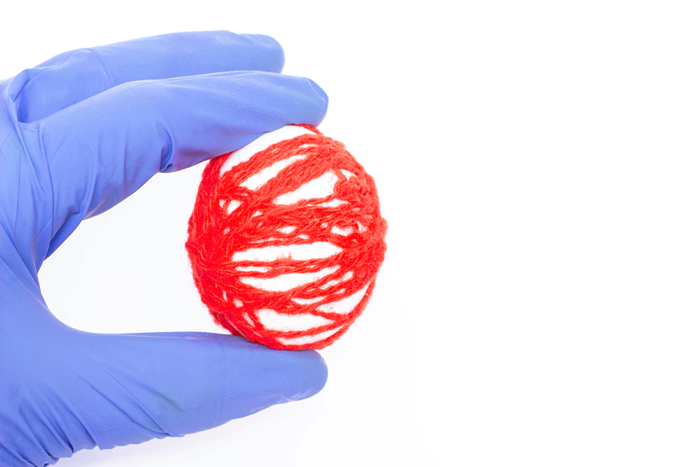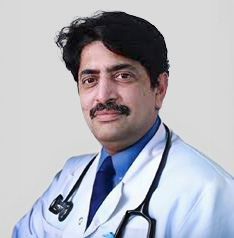Varicocele Treatment in Koramangala, Bangalore
Varicocele can be compared to varicose veins, except that it involves enlargement of veins in the scrotum. Treating such vein abnormalities in the scrotum through vascular surgery can be effective. There are various surgical options, namely open surgery, microsurgery, laparoscopic surgery and embolization.
You can seek varicocele treatment in Bangalore. Or you can search online for varicocele doctors near me.
What do we need to know about varicocele?
Your scrotum is the skin sack that holds your testicles. It has veins and arteries that deliver blood to the reproductive system. The enlargement of veins within the scrotum is called varicocele. This is an abnormality that can lower sperm count and the sperm quality resulting in infertility.
This problem arises during the development years and is generally found in the left side of the scrotum.
In most cases, varicoceles need time to develop. Not all of these cause infertility. These can be easily treated through non-risky vascular surgery.

What are the symptoms of varicocele?
There are no prominent symptoms of varicocele that can affect your day-to-day life. You can identify some swelling that can be associated with any condition, but to be sure, you need to get it checked by a specialist. You can seek varicocele treatment in Koramangala as well. Or visit a varicocele hospital in Koramangala.
That being said, there are some signs that can be associated with varicocele. If you see any of these you may proceed to visit a urologist for confirmation.
- Swelling in the scrotum
- Lump on testicles
- Enlarged or twisted veins visible on the scrotum
- Mild but recurring pain in the scrotum
What are the causes of varicocele?
If the valves inside your spermatic cord (that delivers blood to and from your testicles) malfunction, it may prevent blood from flowing properly. This would result in a buildup of blood causing widening or twisting of the veins. This condition is varicocele.
When do you need to see a doctor?
Generally, varicocele doesn’t show any symptoms or cause any serious effects on your overall health. Thus it can be left untreated if it doesn’t cause any pain or keeps your reproductive system unaffected.
In some cases, there is a chance of pain and swelling that can get worse. It can also cause a noticeable change in the shape and size of the testicles. So, it is better to leave the decision with experts. If you see any abnormalities in the size or shape of the scrotum, especially in developing years, or if you experience even mild pain, it is time to see a doctor.
You can request an appointment at Apollo Spectra Hospitals, Koramangala, Bangalore.
Call 1860 500 2244 to book an appointment.
What are the risk factors of the surgery?
The treatment options for varicocele include surgical and minimally invasive approaches. All these have some risks involved. Most of these factors can be prevented or managed by expert care.
The surgical treatment of varicocele poses the following risks:
- Chance of recurrence
- There may be a buildup of fluid around testicles
- Damage to the artery during surgery
- Infection
- Testicular atrophy
How do you prepare for a varicocele surgery?
A proper diagnosis, arrangement for the recovery process and mental readiness are part of the preparation for a varicocele surgery. The diagnosis consists of a physical exam, scrotal ultrasound and, in some cases, some other imaging tests as recommended by your doctor.
For almost all surgical treatments, from open surgery to laparoscopic, you will be given general anesthesia. Only in the case of embolization you would be under mild sedation and local anesthesia. After the surgery, you need up to three weeks for full recovery, depending upon the procedure. You need to stay away from exercise and sexual activity for about a month.
What are the varicocele treatment options?
These include:
Percutaneous embolization: In this not so widely used method to treat varicocele, a catheter is inserted in the vein through a small nick on the groin or the neck. The catheter is advanced to the affected veins using X-ray imaging as guidance. The surgeon/doctor releases metal coils or sclerosant solution to block the blood to the damaged veins.
Laparoscopic surgery: It is done by making a tiny incision on the abdomen and inserting small laparoscopy instruments to repair varicoceles.
Microsurgery: Combining magnification with specialized surgical tools has proven advantageous especially in vascular surgery. This technique can be used to repair varicocele.
Open surgery: This might be the most widely used surgical treatment. In this procedure, as the name suggests, a surgeon makes a big incision to open up and see the damaged veins and seal them off.
Conclusion
Varicocele is not a very serious issue in many cases, but it can cause infertility. Thus, it needs to be diagnosed at the earliest.
There is no need to go through a surgical procedure if you are not showing symptoms.
Supporting your scrotum with a tight undergarment or a supporting strap can help you ease the pain
Your recovery may take 4-6 weeks, but improvement of semen parameters may take up to 6 months after the surgery.
Symptoms
Our Doctors
DR. VINAY NYAPATHI
MBBS, MD (Radiodiagn...
| Experience | : | 27 Yeras Experience |
|---|---|---|
| Speciality | : | Vascular Surgery... | Location | : | Koramangala |
| Timings | : | Wed, Sat : 12:00 AM ... |
DR. VARUN J
MBBS, DNB (Gen Surge...
| Experience | : | 15 Yeras Experience |
|---|---|---|
| Speciality | : | General Surgery /Vas... | Location | : | Koramangala |
| Timings | : | Mon, Fri : 11:00 AM ... |
Our Top Specialities
NOTICE BOARD
CONTACT US
CONTACT US
 Book Appointment
Book Appointment




.svg)
.svg)
.svg)
.svg)








